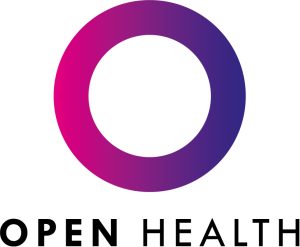What is adult learning theory and how can it be used to help maximise your team’s potential?
February 10, 2020 |
Written by Briony Frost, OPEN Health
Andragogy vs pedagogy vs heutagogy? Instrumental or reflective or motivational or transformative? There are many names for the many theories we use to explain now people learn.”1 It doesn’t matter what we call them, it’s what we do with them that counts; choosing and using the right learning strategies at the relevant point on the learning continuum “help[s] people create themselves.”2
Here at OPEN Health, we know that working in the healthcare space “not only demands the acquisition of knowledge and skills, but also involves a process of growing into the professional community”—a lifelong, dynamic, demanding process.”3 To stay at the top of the game, we all need training top-ups throughout our careers to maximise our potential and meet the needs of a changing healthcare landscape; but what does the ‘right’ training look like?
At OPEN Health Learning & Development, we think the right training should meet the needs of your company, your teams and your customers. Training should be shaped by robust adult learning theories that inform “all aspects of health profession education, from mission and vision statements to outcomes, implementation, and evaluation.”3 That’s why we’ve devised the OPEN Health methodology:

This may all seem very complicated, but our approach takes these concepts and distils them into a highly effective methodology that makes developing training materials simple, whilst maximising their impact on performance.
Our training responds to the six key principles of adult learning. We structure our learning outcomes according to the SOLO taxonomy model, favoured by scientists, and organise learning materials and activities according to the principles of Constructive Alignment to ensure our learners understand why they need to know what we’re teaching them, how it will help them to achieve their goals, what routes they can take on their learning journey and what success looks like.4
Combining Connectivism5,6 with Constructivism,7 we recognise that learning is always a process of building new knowledge on the foundations of what you already know. That’s why we respect our learners’ existing expertise and encourage them to share their own experiences to contextualise new learning, which enables them to link it to a wider range of sources of information, creating a powerful network of understanding that is personal to each learner.4
To help you thrive in an increasingly digital world, we also embrace the TPACK model. This situates our approach to learning design and development at the intersection between high-quality content knowledge and skills development, the best learning and teaching practices, and the most appropriate technologies for the job—considering not only the technology used to undertake the training, but also what’s used in your professional practice.8
Most importantly, we know that professionals need to be motivated to fit development work into their busy lives and, that while everyone’s motivations are unique, learners respond best when training is accessible, digestible and relevant to real-life tasks.4 You are the expert in your own needs and have the best understanding of how you’ll use the knowledge and skills you’re developing in practice.
Breaking away from traditional, content-driven approaches, our Backwards Curriculum strategy means that our training is always led by the outcomes you want.9 We establish where you are and where you want to be, and map our assessment and learning approaches to provide clear routes from A to B.
The OPEN Health approach to learning and development applies these theories in a highly practical way that maximises the effectiveness of each deliverable without adding to implementation time. If you’d like to hear more about our ways of working, please get in touch to discuss how we can partner with you to create the training your teams needs to maximise their potential.
1. Merriam SB et al. Learning in Adulthood: A Comprehensive Guide, 2007.
2. Greene M. Teachers College Record 1978;80(1);24–35.
3. Taylor DCM & Hamdy H. Medical Teacher 2005;35(11):e1561–e1572.
4. Knowles M et al. The Adult Learner: The Definitive Classic in Adult Education and Human Resource Development, 6th edition, 2005.
5. Siemens G. International Journal of Instructional Technology and Distance Learning 2005:2(1):3–10.
6. Downes S. Journal of Emerging Technologies in Web Intelligence 2010:2(1):27–33.
7. Biggs J & Tang C. Teaching for Quality Learning at University, 2011.
8. Mishra P & Koehler MJ. Teachers College Record 2006:108(6):1017–1054.
9. Wiggins G & McTighe J. Understanding by Design 1998:7–19.
This content was provided by OPEN Health





